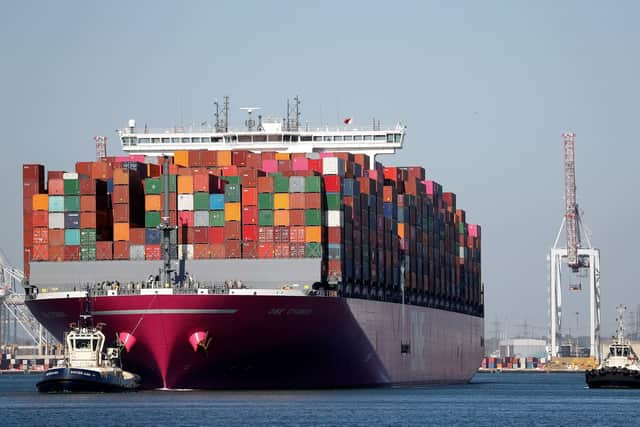Rail is on the right track to reap freight rewards - Martin Bignell
There is ongoing debate over which future fuel is best placed to decarbonise rail in the short, medium and long term. With only 38 per cent of the UK rail network currently electrified, electrification requires significant additional public investment in overhead wires and boosting power supply at key points to accommodate future demand. What it enables, though, is for passenger and freight operators to deploy cost-efficient and mature technologies like electric traction far more extensively.
Hydrogen solutions are being developed at small scale but as with any new technology, there are many questions to be resolved around how it will work in practice to assure the reliability that operators have today and customers expect from the service. Assurance of fuel supply and fuelling facilities, developing alternative locomotives, locomotive maintenance skills and arrangements and evolving safe working practices around the fuel are just a few of the challenges to be addressed.
Advertisement
Hide AdAdvertisement
Hide AdBattery technology is developing fast and may play an important role in areas where electrification of routes isn’t complete or viable. For the duty cycle of rail freight, typically longer distances and long, heavy trains, its role is perhaps more limited to facilitating ‘last mile’ operations into terminals rather than as a core mainline operation form of energy.


Freightliner has been exploring an alternative that its new partnership with Ocean Network Express is trialling. Its service between Southampton and Coatbridge currently can’t be done using electric traction for the whole journey as the entire route from port to terminal isn’t electrified. The partners are instead seeking to make this service one of the greenest rail freight routes in the UK using a type of Hydrotreated Vegetable Oil (HVO) called GD+. It’s being used on the leg from Southampton to Crewe, with electric traction onward to Scotland. GD+ green biofuel is a direct diesel replacement, made entirely from waste and residual oils, which delivers 92 per cent lower emissions than diesel, including lower particulate matter, nitrogen oxides and methane.
Investing heavily in long term asset solutions based on promises of as-yet undelivered infrastructure or immature technologies is a huge commercial risk for the commercial rail freight operators. As a short- to medium-term solution, the rail freight industry and it’s end customers exploring fuels like GD+ as a method of decarbonising while still deriving longer-term value from the asset fleet they already have all helps to keep the industry competitive.
Many fondly remember the British Rail ‘Red Star’ parcel network and parcel freight has appeared in Scotland again recently with new rail freight operator, Varamis, launching an overnight service between terminals in Birmingham and Mossend. The all-electric service, using modified passenger trains rather than traditional locomotive-hauled rail wagons, is being trialled by several large parcel networks. As with Ocean Network Express, major companies in the parcels sector are exploring ways to re-engineer their networks to decarbonise them. Trunk-legs by zero emission rail and with fast transit times between major hubs, with short last mile road connections to sorting facilities, that could be done by zero emission commercial vehicles is gaining interest.
Customer expectation and the competitiveness of online retail place huge cost and operational pressure on parcel companies so any potential rail solution must work viably, but the signs are promising that this long talked about market might just be flickering into life again.
Martin Bignell, Scottish and Northern Representative, Rail Freight Group
Comments
Want to join the conversation? Please or to comment on this article.